Faculty
2021 Spring Meeting Planning Committee
Nabil Elkassabany, MD, MScE, Meeting Co-Chair
Jaime Baratta, MD, Meeting Co-Chair
Maxim Eckmann, MD, Ex-Officio, CME Co-Chair
Stephen C. Haskins, MD, 2023 Meeting Chair
Reena John, MD, Resident Section Chair, 2020-2021
Rebecca L. Johnson, MD, 2022 Meeting Chair
Linda Le-Wendling, MD, Member-at-Large, Local Faculty
Colin McCartney, MBChB, PhD, FRCA, FCARCSI, FRCPC, Ex Officio, CME Committee
Meg A. Rosenblatt, MD, Member-at-Large
Gary Schwartz, MD, Practice Management Committee
Brian D. Sites, MD, Ex Officio, Editor-in-Chief
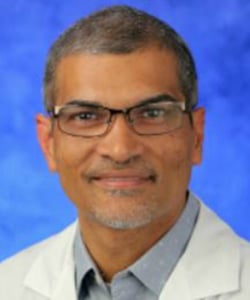
Sanjib Adhikary, MD, is an anesthesiologist with fellowship training in regional anesthesia and neuroanesthesia. He deals with regional anesthesia procedures for acute pain management almost daily in his clinical practice. He teaches ultrasound-guided regional anesthesia to residents and faculty regularly as a part of his daily job. Since 2009, he has been an instructor for advanced ultrasound-guided regional anesthesia workshops at ASRA and Canadian Anesthesia Society annual meetings. [Top]

Alberto Ardon, MP, MPH, obtained his medical degree from Tulane University School of Medicine, completed his anesthesiology residency training at the University of Virginia, and completed fellowship in regional anesthesia and acute pain medicine at Mayo Clinic. He currently practices at Mayo Clinic where he focuses on regional and ambulatory anesthesia and is also the medical director of the PACU. He has been a member of ASRA since 2012 and is currently a member of the ASRA membership committee. [Top]

Jaime Baratta, MD, is an associate professor of anesthesiology and director of regional anesthesia as well as the director of the regional anesthesia and acute pain fellowship in the department of anesthesiology at Thomas Jefferson University in Philadelphia, PA. She received her medical degree from Jefferson Medical College. After serving five years as a medical officer in the United States Navy, she completed her residency and fellowship at Thomas Jefferson University. She will be the chair of the 2020 Regional Anesthesiology and Acute Pain Medicine Meeting. [Top]

Karen Boretsky, MD, is trained in pediatric anesthesia, critical care, and regional anesthesia. She practiced pediatric and adult anesthesia for many years. In 2012, she became the director of the regional anesthesia program at Boston Children’s Hospital. Her research interests include evaluating the role of regional anesthesia in managing pain and recovery in children. She has authored articles on novel regional anesthesia techniques and presents nationally and internationally. She is passionate to find ways to minimize pain and improve safety using regional anesthesia in children. [Top]
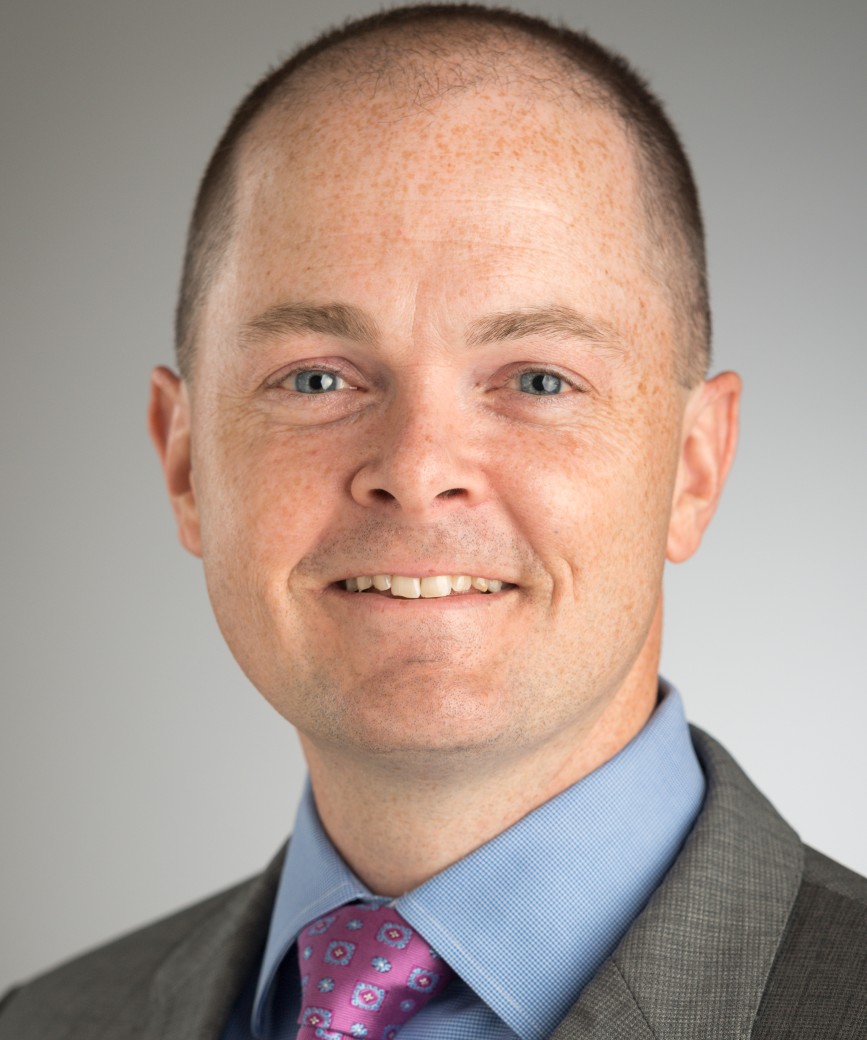
Chad Brummett, MD, is an associate professor at the University of Michigan where he is the director of Pain Research and Clinical Anesthesia Research. He also serves on the editorial boards for Anesthesiology and Regional Anesthesia and Pain Medicine. His research interests include predictors of acute and chronic post-surgical pain, personalized pain medicine, and opioid use and misuse.[Top]
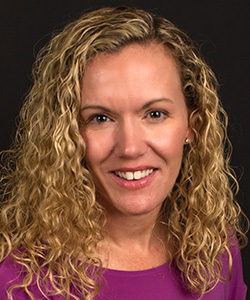
Melissa Byrne, DO, MPH, is a graduate of Michigan State University College of Osteopathic Medicine. After residency in anesthesiology at the University of Michigan, she worked in private practice in Virginia before returning back to her home in Michigan to complete a fellowship in Regional and Ambulatory Anesthesia. Her interests include resident education and Point of Care Ultrasound (PoCUS). She has recently been named assistant director for PoCUS where she is active in curriculum development. [Top]
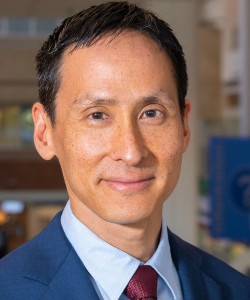
Ki Jinn Chin, MBBS(Hons), FRCPC, is a professor in the department of anesthesiology & pain medicine at the Toronto Western Hospital, University of Toronto, Canada. He completed medical school at the University of Newcastle-upon-Tyne, U.K., and his anesthesiology training in Singapore. He has fellowship training in Neuroanesthesia (University of Western Ontario) and Regional Anesthesia (Toronto Western Hospital). He has a deep interest in anything to do with ultrasound-guided regional anesthesia, particularly where it improves patient care, comfort and outcomes. [Top]
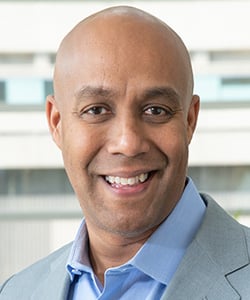
Hance Clarke, MD, PhD, is the director of pain services and the pain research unit at the Toronto General Hospital (TGH). He is the Knowledge Translation Chair for the University of Toronto Centre For the Study of Pain and an associate professor in the Department of Anesthesiology and Pain Medicine at the University of Toronto. As a clinician-scientist, Dr. Clarke has played a leading role in educating the public about pain control, alternatives to opioids, and the need for further studies on the beneficial and adverse effects of cannabis. He is a champion of evidence-based solutions for the opioid crisis and an advocate for a national pain and addictions strategy. He has authored over 100 peer-reviewed publications and has been invited to speak on pain control, cannabis, and the opioid crisis to the House of Commons in Ottawa, Canada, and elsewhere around the world. [Top]
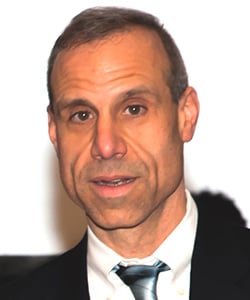
Steven P. Cohen, MD, obtained his medical degree at Mount Sinai, completed an anesthesiology residency at Columbia University, and a pain fellowship at Massachusetts General Hospital. He is professor of anesthesiology & critical care medicine, neurology and physical medicine & rehabilitation at the Johns Hopkins School of Medicine and Uniformed Services University of the Health Sciences. He is also chief of Pain Medicine and director of the Blaustein Pain Treatment Center at Johns Hopkins and a retired Army colonel. [Top]

Joanne Mather Conroy, MD, is the president and CEO of Dartmouth-Hitchcock and Dartmouth-Hitchcock Health in Hanover, NH. Dr. Conroy previously served as CEO of Lahey Hospital & Medical Center in Burlington, MA, and as chief health care officer for the Association of American Medical Colleges in Washington, DC. She has also served as chief medical officer, vice president of Academic Affairs and executive vice president of the Atlantic Health System based in Florham Park, NJ, and as president and chief operating officer for the Morristown Memorial Hospital in Morristown, NJ. She held several academic and administrative leadership positions at the Medical University of South Carolina (MUSC), including president of the MUSC medical staff, associate vice president for Medical Affairs, executive medical director and senior associate dean of the MUSC College of Medicine. She received her undergraduate degree in chemistry from Dartmouth College. Dr. Conroy received her medical degree from MUSC, where she completed her residency in anesthesiology, serving as chief resident for one year. Dr. Conroy is board certified with the American Board of Anesthesiologists. [Top]

Jesse Ehrenfeld, MD, is a senior associate dean, tenured professor of anesthesiology, and director of the “Advancing a Healthier Wisconsin Endowment” at the Medical College of Wisconsin. Dr. Ehrenfeld divides his time among clinical practice and directing a $511-million health philanthropy. He also is a consultant to the WHO and has served as special advisor to the 20th U.S. Surgeon General. Dr. Ehrenfeld’s research, which focuses on understanding how information technology can improve surgical safety and patient outcomes, has been funded by the NIH, the DoD, the RWJF, the APSF, and FAER. [Top]
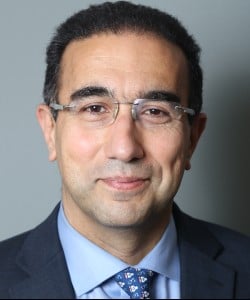
Nabil Elkassabany, MD, MSCE, is an associate professor in the department of anesthesiology and critical care at the Perelman School of Medicine, University of Pennsylvania in Philadelphia. He is the director of the sections of Regional and Orthopedic Anesthesiology and he is also the director of the regional anesthesiology and acute pain medicine fellowship. His research interest focuses on improving patients’ outcomes after regional anesthesia. He currently chairs the industry relation, and communication committees and he is a member of the board of directors of ASRA. [Top]

Kariem El-Boghdadly, MBBS, BSc, FRCA, EDRA, is a consultant anaesthetist at Guy’s & St Thomas’ NHS Foundation Trust and honorary senior lecturer at King’s College London. His interests include regional anesthesia, airway management, and research delivery. He is the scientific officer for the Difficult Airway Society, R&D lead for his directorate, an editor of Anaesthesia journal, executive editor of Anaesthesia Reports, and well-published. Most importantly, Kariem is lucky to collaborate with many colleagues around the world who he calls his friends. [Top]
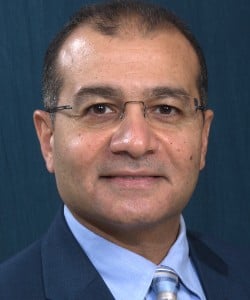
Hesham Elsharkawy, MD, MBA, MSc, FASA, is a staff member at MetroHealth and associate professor at Case Western Reserve University in Cleveland, OH. Dr. Elsharkawy’s research focus has been on development of new technologies, new pain procedures, and the transition from acute to chronic pain. This interest led him to establish the Persistent Postoperative Pain Special Interest Group. He has experience in research, has contributed to the field of regional anesthesia, and has been invited to many lectures and workshops, in national and international conferences, and on numerous grand rounds. Dr. Elksharkawy is also actively involved in multiple research projects and multicenter studies and has received multiple grants to support research projects. The core of his educational activities is teaching residents and fellows in different clinical settings, as well as during formal lectures, journal clubs, simulation sessions, workshops, and problem-based learning discussions. He earned an MBA from Cleveland State University, which helps him to lead many departmental projects. [Top]

F. Kayser Enneking, MD, is a professor in the departments of anesthesiology and orthopedics and rehabilitation at the University of Florida (UF) College of Medicine in Gainsville. She earned her medical degree at the University of Florida, completed her residency in anesthesiology at the University of Texas, and completed her fellowship in regional anesthesiology at Brigham and Women’s Hospital in Boston, MA. Dr. Enneking joined UF in 1991 as an assistant professor in the department of anesthesiology and rose through the ranks until she became the chair of the department of anesthesiology and assistant dean for clinical affairs for the UF College of Medicine. Among the positions she held was the division chief for regional anesthesia and acute pain medicine. Many residents and fellows were trained under her, and they went on to spread her legacy around the country. Dr Enneking’s strong interest in regional anesthesia for orthopedic surgeries and ambulatory anesthesia led to the development of novel analgesic techniques for these patient populations. She has published more than 50 scholarly works in this area and mentored regional anesthesia fellows and junior faculty members. She won several awards including the TW Andersen Teaching Award and the Haven Perkins Lifetime Achievement Award, and she has also served on the ASRA Board of Directors. In 2020, she was named one of eight ASRA Trailblazers, a one-time award given to women pioneers in pain medicine. [Top]

Jeff Gadsden, MD, FRCPC, FANZCA, is a staff anesthesiologist at Duke University Hospital in Durham, NC. He graduated with an MD in 1999 from Queen’s University in Kingston, ON, Canada, and undertook training in anesthesiology at the University of Toronto and St. Luke’s-Roosevelt Hospital in New York City. Dr. Gadsden holds fellowships with the Royal College of Physicians and Surgeons of Canada (anesthesia) and the Australian and New Zealand College of Anaesthetists, and he is board certified by the American Board of Anesthesiology. After working in both Canada and Australia, he decided to return to the United States to focus on his teaching and research interests of ultrasound-guided nerve blockade, the monitoring of regional anesthesia, trauma, and education. [Top]

Ralf E. Gebhard, MD, is a professor in the department of Anesthesiology, Perioperative Medicine and Pain Management at the University of Miami. He also is the chief of the division of Acute Pain Management and Regional Anesthesia and serves as vice chairman for clinical research. In addition to his expertise in the area of acute pain management, Dr. Gebhard has also proven himself to be an outstanding clinical researcher and scientist. He has conducted more than 50 clinical trials as a principal investigator and has received significant grants to support his research. His area of particular interest is related to peripheral nerve block safety and complications, as well as acute pain management in the pediatric population. Dr. Gebhard has published multiple book chapters and more than 40 peer-reviewed articles. He currently serves as a reviewer for numerous journals including Anesthesiology, Anesthesia and Analgesia, and Regional Anesthesia & Pain Medicine. [Top]
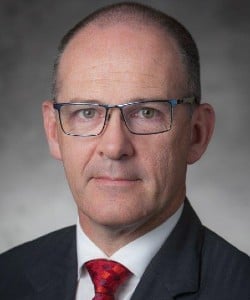
Stuart Grant, MBChB, MMCI, trained in Glasgow, Scotland, before moving to the United States. He is chief of regional anesthesiology at the University of North Carolina Chapel Hill. He serves on the ASRA CME committee and directs the free-standing ASRA Ultrasound-Guided Regional Anesthesia Education Portfolio Cadaver courses. His textbook Ultrasound-Guided Regional Anesthesia is now in its second edition. [Top]

Chancellor Gray, MD, is an associate professor and associate physician director of Quality for the department of Orthopaedic Surgery at the University of Florida (UF). He co-developed the outpatient arthroplasty program at UF in 2016, has served as co-chair of the Patient and Family Centered Care (PFCC) program, and has championed value-based care at UF. His areas of research interest are in health policy related to joint replacement, and optimizing patient functional recovery after joint replacement surgery. [Top]
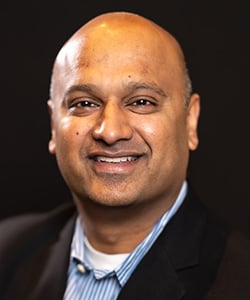
Rajnish Gupta, MD, is an associate professor of anesthesiology at Vanderbilt University Medical Center in Nashville, TN. His clinical focus is on regional anesthesia, acute pain management, and orthopedics anesthesia. He has been the director of the Acute Pain Service and now currently serves as the director of Orthopedics Anesthesia at VUMC. Dr. Gupta’s research focus includes regional anesthesia techniques, resident education, technology integration into clinical practice, smartphone app development, and endogenous mechanisms of pain experience. [Top]

David Hardman, MD, MBA, FASA, is a professor of anesthesiology and vice-chair for professional affairs at the University of North Carolina at Chapel Hill. He previously served as a subspecialty regional anesthesiology faculty member and residency program director at Duke University. Dr. Hardman has expertise in nerve injury after peripheral nerve block and regularly consults as an expert witness defending anesthesiologists who have experienced neurologic complications after peripheral nerve blocks. [Top]

Captain James Harlow, has been an airline pilot for 25 years. He has 14,000 flying hours of experience on Boeing 747, 757, 767, and A320s and is currently a B777 Captain. He is both a technical trainer on the B777 (TRI/TRE) and a human factors trainer and examiner for all British Airways (BA) pilots. His human factors role within BA covers many things. First and foremost, and the part he is most passionate about is training; be it in a classroom, the simulator, or most importantly, on the aircraft. He also helps write and design training packages and is part of a group responsible for ensuring that all BA flight crew achieve the highest levels of human factors skills, defining competency standards and maintaining regulatory compliance. [Top]
Stephen Haskins, MD, is a regional anesthesiologist trained at the Hospital for Special Surgery in New York, NY. During his fellowship, Dr. Haskins developed an interest in PoCUS, specifically focused cardiac ultrasound, lung ultrasound, abdominal ultrasound and gastric ultrasound. Dr. Haskins is the co-founder and co-chair of ASRA Perioperative Point-of-Care Ultrasound (PoCUS) Special Interest Group. He is also lead author for PoCUS for the Regional Anesthesiologist and Pain Specialist Review Series in Regional Anesthesia & Pain Medicine. [Top]

Nadia Hernandez, MD, completed her anesthesiology residency at the Icahn School of Medicine at Mount Sinai Health System in New York, NY, followed by fellowship training in regional anesthesia and acute pain medicine. She moved back home to Texas where she serves as an assistant professor of anesthesiology at the University of Texas (UT) at Houston McGovern School of Medicine. After one year, Dr. Hernandez revamped the regional anesthesiology fellowship and was promoted to director of regional anesthesiology at UT Houston as well as program chair of the Regional Anesthesia and Perioperative Ultrasound Fellowship. She is one of the co-founding members of the ASRA Perioperative Point-of-Care Ultrasound Special Interest Group. [Top]

Maggie Holtz, MD, is a board certified anesthesiologist. Having previously served as assistant professor of anesthesiology at Emory and then at Yale, she now works for Georgia Anesthesiologists, P.C., where she is chief of regional and orthopedic anesthesia at WellStar Kennestone Regional Medical Center in suburban Atlanta. Dr. Holtz speaks across the country on opioid minimization and enhanced recovery after surgery, and also teaches at regional anesthesia workshops both nationally and internationally. [Top]

Barys Ihnatsenka, MD, started his career in anesthesia and critical care in 1995 when he graduated from medical school in Belarus. In 2001, he moved to the United States. In 2005, he started residency training at the University of Florida in Gainesville, where he also completed his fellowship in regional anesthesia and acute pain medicine. Since graduation, he has been a faculty member at the University of Florida. He is in interested in education and simulation especially in regional anesthesia. [Top]

Brian Ilfeld, MD, MS, completed medical school and his residency at the University of California San Francisco and did a regional fellowship as well as earn his master's of science degree in clinical investigation at the University of Florida in Gainesville. Since 2006, his focus has been in clinical research at the University of California San Diego. Dr. Ilfeld has received more than $10 million in career federal funding with current clinical research involving the treatment of both acute and chronic pain with ambulatory continuous peripheral nerve blocks, cryoneurolysis, and percutaneous peripheral nerve stimulation. [Top]

Christina L. Jeng, MD, FASA, is an associate professor in anesthesiology, perioperative and pain medicine; orthopedics; and medical education at the Icahn School of Medicine at Mount Sinai. She graduated from college at Yale University and medical school at the Mount Sinai School of Medicine. She is the director of the regional anesthesiology and acute pain medicine fellowship and assistant program director for clinical competence for the resident training program at Mount Sinai. She has taught ultrasound-guided regional anesthesia workshops at regional, national, and international meetings. [Top]
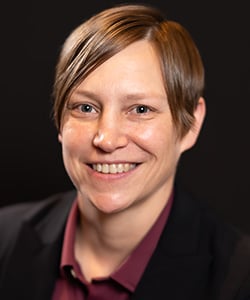
Rebecca Johnson, MD, is an associate professor of anesthesiology at Mayo Clinic Rochester, MN. She is fellowship-trained in regional anesthesia and acute pain management. Additionally, she has received a Postdoctoral Certificate in Clinical and Translational Science and was selected as a Health Care Delivery Scholar in the Mayo Clinic Kern Center for the Science of Health Care Delivery. She uses health care delivery research methods to study outcomes following total joint arthroplasty focusing on multimodal and regional anesthesia use within enhanced recovery protocols. [Top]
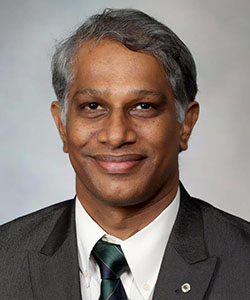
Hari Kalagara, MD, is passionate about regional anesthesia and has completed a regional anesthesia fellowship at Cleveland Clinic in Cleveland, OH. He has attained European Diploma in Regional Anesthesia (EDRA) by the European Society of Regional Anaesthesia and Pain Therapy and was awarded the ASRA Resident/Fellow of the Year Award in 2017. Dr. Kalagara organizes and serves as primary activity director for the cadaveric regional anesthesia ultrasound workshops held at Cleveland Clinic. He is convinced of the benefits of regional anesthesia for pain relief for various surgical procedures and always tries to incorporate regional anesthesia for patient care. Dr. Kalagara is currently working as assistant professor at the University of Alabama at Birmingham with special interest in regional anesthesia. [Top]
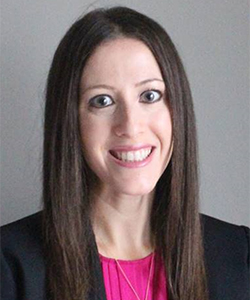
Michelle Kars, MD, completed her training in both general pediatrics and anesthesiology at New York Presbyterian Weill-Cornell in New York, followed by a fellowship in pediatric anesthesia at Children’s National Medical Center in Washington, DC. Dr. Kars is the director of the Pediatric Acute Pain Service at Northwell Cohen Children’s Medical Center and the director of Continuing Medical Education for the department of anesthesiology at Long Island Jewish Medical Center. She is an assistant professor of anesthesiology at the Zucker School of Medicine at Hofstra/Northwell where she serves as a part of the core faculty for the anesthesia residency. Her clinical interests include point-of-care ultrasound application in pediatrics as well as research in regional anesthesia techniques in infants and children to minimize opioid requirements in the perioperative period. [Top]

Henrik Kehlet, MD, PhD, is a professor of surgery and perioperative therapy at Rigshospitalet in Copenhagen, Denmark. He has conducted research within surgical pathophysiology, acute pain physiology, and postoperative recovery, condensed into the concept of “fast-track surgery” or “enhanced recovery.” Dr. Kehlet has published about 1,100 scientific articles and presented more than 300 invited lectures at international scientific meetings, including several honorary lectures. He received the American Society of Anesthesiologists Excellence in Research Award in 2014. [Top]

Lynn Kohan, MD, is an associate professor of anesthesiology and pain medicine at the University of Virginia. She obtained her medical degree from Georgetown University, where she also completed her anesthesia residency. She completed her pain medicine fellowship at the University of Virginia and stayed on as faculty. She currently serves as the Pain Management Fellowship Director. Her research and clinical interests include head and facial pain, novel RF techniques, medical and interventional treatments for acute and chronic pain, and resident/fellow education. [Top]
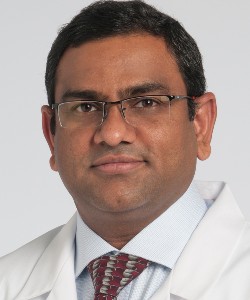
Sree Kolli, MD, EDRA, is a regional anesthesiologist and point-of-care ultrasound (PoCUS) enthusiast. Dr. Kolli trained at the Cleveland Clinic for his anesthesia residency and fellowship in acute pain and regional anesthesia. He completed training in the United Kingdom and attained European Diploma in Regional Anesthesia from the European Society of Regional Anaesthesia and Pain Therapy in 2011. Dr. Kolli is the organizer and primary activity director for the Cleveland Clinic's Cadaver Regional Anesthesia & PoCUS Workshops and the Chronic Pain Ultrasound Workshops at the Pain Management Symposium. He is currently the associate program director for the regional anesthesia fellowship program at the Cleveland Clinic. [Top]
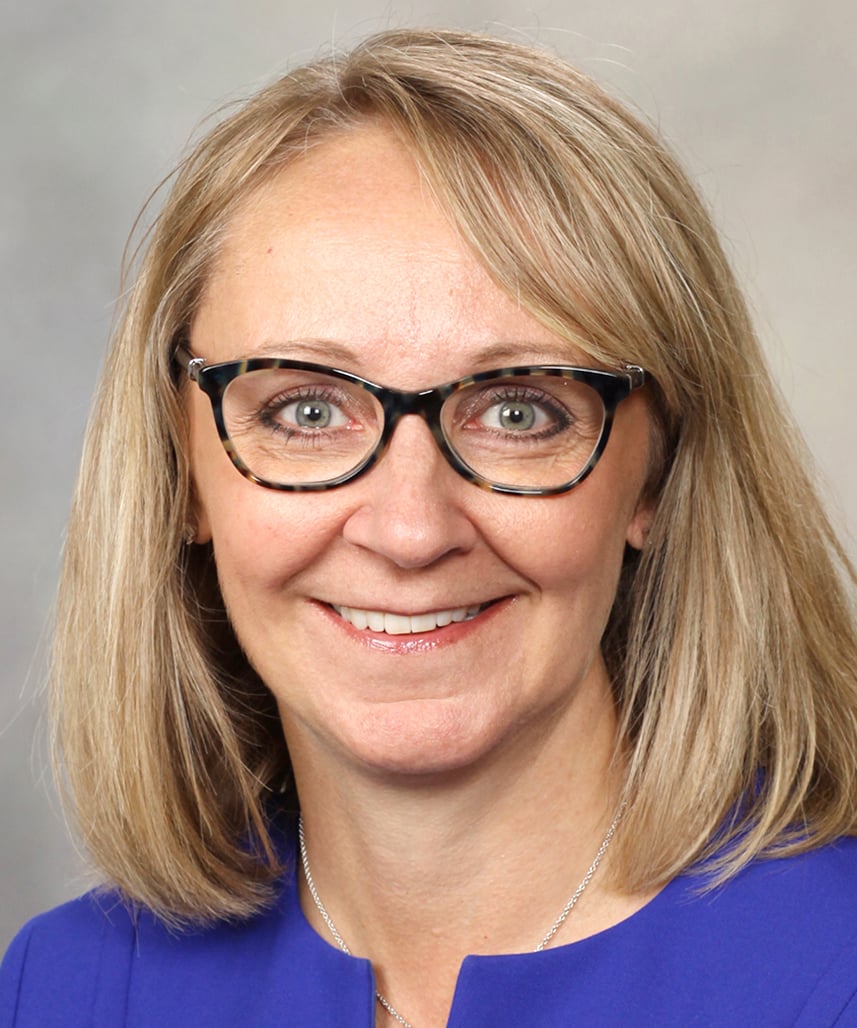
Sandra L. Kopp, MD, is a professor of anesthesiology & perioperative medicine at Mayo Clinic, Rochester, MN. She received her doctor of medicine degree from the University Of Minnesota School Of Medicine in 1999. Dr. Kopp did her internship, anesthesiology residency, and regional anesthesiology fellowship at Mayo Clinic, Rochester, MN. Dr. Kopp is currently the vice chair, integration and convergence, department of anesthesiology and perioperative medicine; chair, division of community anesthesiology; and chair, surgical and procedural practice in SE Minnesota. As part of her Mayo Clinic enterprise roles, she works clinically providing anesthesia in small community hospitals as well as a large tertiary care hospital. She serves as a Board Member for ASRA. Her research interests include regional anesthesia and analgesia for orthopedic surgery, peripheral nerve injury, and anticoagulation. [Top]

Ruthi Landau, MD, is the Virginia Apgar Professor of Anesthesiology and serves as the Chief of the Division of Obstetric Anesthesia at Columbia University in New York. She is the president of the Society for Obstetric Anesthesiology Perinatology (SOAP). Dr. Landau is passionate about improving patients’ experience and tailoring approaches to each individuals’ needs. She has authored more than 150 articles and textbook chapters and has lectured on all five continents as an invited professor on the genetics of pain, optimized labor analgesia, enhanced recovery after cesarean delivery, judicious opioid prescription, and, most recently, COVID-19. [Top]

Lisa Leffert, MD, is an associate professor at Harvard Medical School and a senior member of the department of Anesthesia, Critical Care and Pain Medicine at the Massachusetts General Hospital in Boston where she serves as the chief of the Obstetric Anesthesia Division. She is immediate past president of the Society for Obstetric Anesthesia and Perinatology (SOAP). Dr. Leffert lectures nationally and internationally on diverse topics such as the anesthetic management of patients with intracranial lesions, strategies for placing neuraxial anesthetics in patients with diverse comorbidities, and the peri-delivery care of patients with substance use disorder. Her research focuses on obstetric patients with neurologic disease. Having led an interdisciplinary effort to create a SOAP consensus statement on neuraxial anesthesia in the obstetric patient on thromboprophylaxis and higher dose anticoagulants, she recently completed a similar effort related to neuraxial anesthesia in pregnant women with thrombocytopenia. [Top]
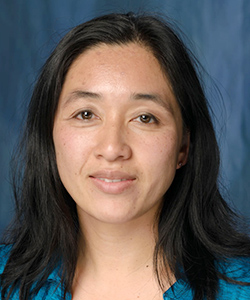
Linda Le-Wendling, MD, completed fellowship in acute pain medicine and regional anesthesiology at the University of Florida, Gainesville. Since then, she has been faculty in the department of anesthesiology and division of acute pain medicine at the University of Florida. She is currently the fellowship director and loves teaching, writing and learning! [Top]

Jinlei Li, MD, PhD, FASA, is an associate professor and co-director of regional anesthesiology and acute pain medicine at Yale University department of anesthesiology and Yale New Haven Health in CT. Dr. Li serves on several committees of the American Society of Anesthesiologists and special interest groups at ASRA. She has participated and organized multiple regional anesthesia workshops in the United States and internationally. Her research interests and publications include total joint replacement, hip fracture, rib fracture, local anesthetics adjuvants, regional anesthesia and anticoagulants, and regional anesthesia education. [Top]
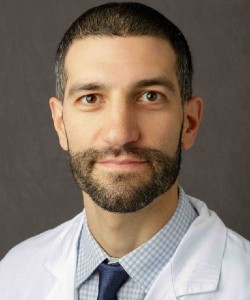
Robert Maniker, MD, is an associate professor of anesthesiology and director of the Acute Pain Service at Columbia University Medical Center in New York, NY. He specializes in regional anesthesia and acute perioperative pain medicine. His research focus is in medical education, specifically in the realms of procedural competency, and novel technologies for education delivery. [Top]
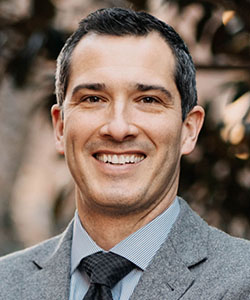
William Manson, MD, is an anesthesiologist at the University of Virginia in Charlottesville. He originally trained in emergency medicine and completed a fellowship in emergency ultrasound. Following ultrasound training, he became the associate director and then director of emergency ultrasound in the Department of Emergency Medicine at Emory University in Atlanta, GA. Then, he undertook training in anesthesiology at the University of Texas Southwestern/Parkland in Dallas, followed by a regional anesthesiology fellowship at the University of Virginia. Dr. Manson’s research focus is perioperative point-of-care ultrasound. [Top]
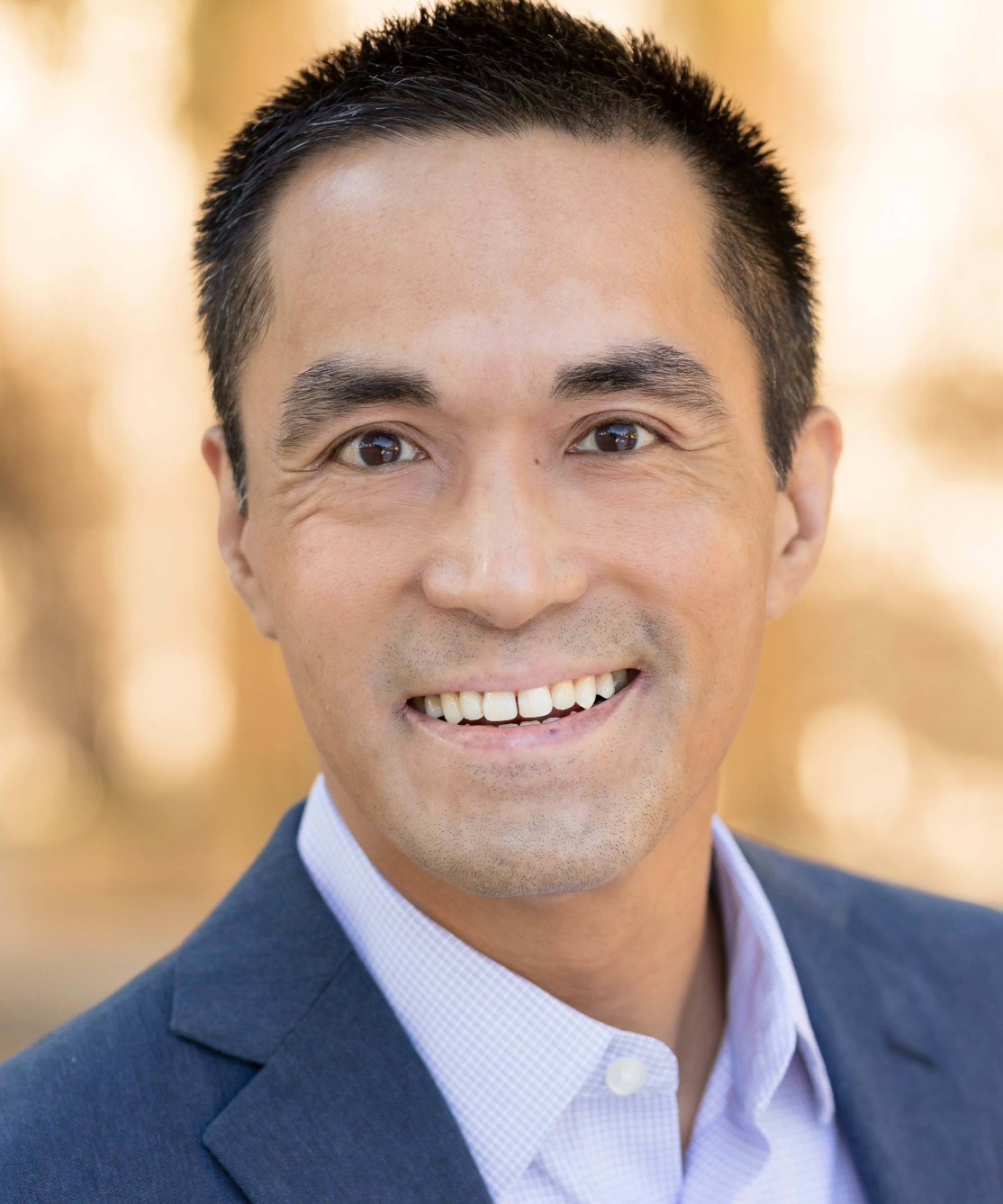
Edward R. Mariano, MD, MAS, is a professor at Stanford University School of Medicine and chief of the anesthesiology and perioperative care service at the Veterans Affairs Palo Alto Health Care System. His research interests include the development of techniques and patient care pathways to improve postoperative pain control, patient safety, and other surgical outcomes. He has published more than 170 peer-reviewed articles. He is a recipient of the Veteran Health Administration’s John D. Chase Award for Physician Executives Excellence and has led key national healthcare initiatives related to pain medicine. [Top]

Bonnie Milas, MD, is a clinical professor of anesthesiology and critical care medicine at the University of Pennsylvania Medical Center in Philadelphia. Her clinical practice involves the anesthetic care of patients undergoing cardiopulmonary surgical procedures and as an intensivist in the heart and vascular ICU following surgery. Dr. Milas is an outspoken advocate for those suffering from opioid use disorder, having lost both of her sons to accidental opioid overdoses. She has published opinion pieces in the Philadelphia Inquirer and USA Today in an effort to reduce social stigma. Through her work locally with the Bucks County Drug and Alcohol Commission and nationally with the American Society of Anesthesiologists, she is an ardent educator of naloxone overdose rescue. Dr. Milas is the chief Narcan rescue officer at her institution. [Top]
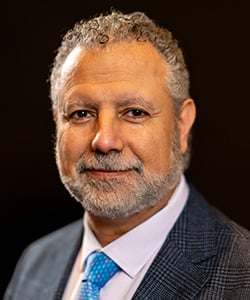
Samer Narouze, MD, PhD, is a professor of anesthesiology and surgery at NEOMED and Ohio University. He is board certified in anesthesiology, pain medicine, headache medicine, and interventional pain management. He is the chairman of the Center for Pain Medicine at Western Reserve Hospital in Cuyahoga Falls, OH. Dr. Narouze is the president-elect of ASRA. He recently founded the American Interventional Headache Society and serves on many committees for national and international headache and pain organizations. He has published about 200 research papers, review articles, book chapters, and abstracts. His areas of interest are pain, headache, cannabinoids, diversity and inclusion, wellness, obesity, and ultrasound. [Top]
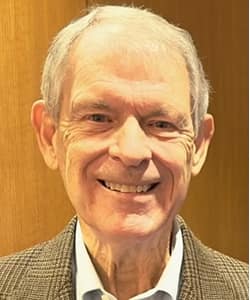
Joseph M. Neal, MD, received his undergraduate and medical training at Wake Forest University in Winston-Salem, NC, and the West Virginia University School of Medicine in Morgantown. He returned to Bowman Gray / Wake Forest University to complete residencies in emergency medicine and anesthesiology. After fellowship training in regional anesthesia at the Virginia Mason Medical Center in Seattle, WA, he joined that group in 1989. He directed the Virginia Mason regional anesthesia fellowship for over a decade as well as its anesthesiology residency program. Dr. Neal is a senior examiner for the American Board of Anesthesiology; was editor-in-chief of Regional Anesthesia and Pain Medicine (2002-2012), and is co-author of the textbooks Requisites in Anesthesiology: Regional Anesthesia; Complications in Regional Anesthesia and Pain Medicine; and Regional Anesthesia: An Illustrated Procedural Guide. He was the president of ASRA from 2012 to 2015. [Top]
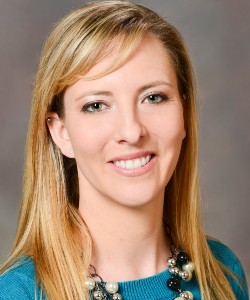
Jennifer Noerenberg, MD, is a board-certified anesthesiologist who completed a fellowship in regional anesthesia and perioperative pain management at Washington University in St. Louis in 2014. She completed residency at the University of California, Davis. She is an associate physician with the Southern California Permanente Medical Group and works for the San Diego region. Her interests include working to develop perioperative pain protocols for several types of surgical applications and developing tools to educate both patients and physicians of resources for multimodal and regional anesthesia techniques. [Top]

Beverly Philip, MD, FACA, FASA, has served the American Society of Anesthesiologists (ASA) in numerous roles, including president-elect and first vice president as well as vice president for scientific affairs. In addition, Dr. Philip is a past president of the International Association for Ambulatory Surgery. She also served as president of the Society for Ambulatory Anesthesia from 1991-1992 and the Massachusetts Society of Anesthesiologists from 2008-2009. As ASA vice president for scientific affairs, Dr. Philip served ex officio on the Foundation for Anesthesia Education and Research Board of Directors and WLM Board of Trustees. [Top]
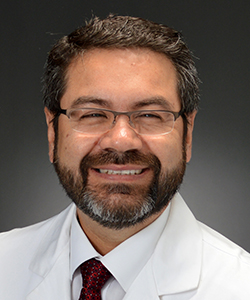
Carlos Pino, MD, is a member of the Board of Directors of ASRA, chair of the Faculty Development Committee, and former co-chair of the CME Committee. He currently works in the department of anesthesiology and pain medicine center of the Naval Medical Center in San Diego and is former professor of anesthesiology and pain medicine at the Robert Larner, MD College of Medicine at the University of Vermont. He also serves as a member of the Pain Medicine Committee and Education in Pain Medicine Subcommittee of the American Society of Anesthesiologists. [Top]
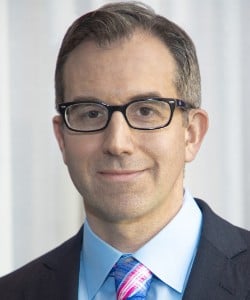
David Provenzano, MD, is the president of Pain Diagnostics and Interventional Care in Pittsburgh, PA. He received his undergraduate degree from Colgate University where he graduated Magna Cum Laude and became a Phi Beta Kappa member. He received his medical degree from the University of Rochester School of Medicine and Dentistry. He completed a surgical internship at Thomas Jefferson University Hospital and a residency in anesthesiology at The Western Pennsylvania Hospital. He completed a pain management fellowship at the Dartmouth Hitchcock Medical Center. Dr. Provenzano has served as a principal investigator on multiple research studies and published numerous scientific articles. His research interests include neuromodulation and monopolar and bipolar radiofrequency lesioning. He has lectured at numerous international and national meetings on the management of acute and chronic pain. He serves as an external member of the Robert Morris University IRB. He serves as treasurer on the ASRA Board of Directors and secretary on the North American Neuromodulation Society board of directors. In addition, he serves on the Educational Track Subcommittee on Pain Medicine for the American Society of Anesthesiologists. He has extensive interests and expertise in the conservative treatment of pain originating from the cervical and lumbar spine, neuromodulation, and in the utilization of ultrasound for interventional pain management procedures. [Top]
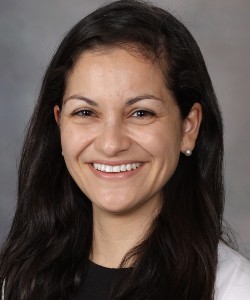
Bridget Pulos, MD, is a regional anesthesiologist at Mayo Clinic in Rochester, MN. She graduated from Tufts University in Medford, MA, and completed medical school, anesthesiology residency, and regional anesthesia and acute pain medicine fellowship at the University of Pennsylvania in Philadelphia, PA. Dr. Pulos’ interests include resident education, ultrasound-guided regional anesthesia, and the impact of regional anesthesia on perioperative outcomes. [Top]

Britany Raymond, MD, is an obstetric anesthesiologist who practices at Vanderbilt University Medical Center, where she completed her residency and fellowship. She carries a passion for teaching academic medicine and serves as the director for Undergraduate Medical Education for her department. Her clinical concentrations include high-risk obstetric anesthesia, fetal surgery, and perioperative medicine. Her research interests surround enhanced surgical recovery and preoperative optimization. [Top]
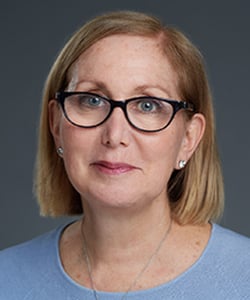
Meg A. Rosenblatt, MD, is a professor of anesthesiology and orthopedics at the Icahn School of Medicine at Mount Sinai and the chair of the department of anesthesiology, perioperative and pain medicine at Mount Sinai Morningside and West Hospitals. She was the chair of the 2020 annual meeting of the American Society of Anesthesiologists and is the general chair for the 2020 Post-Graduate Assembly. She is a senior question editor and full examiner for the American Board of Anesthesiologists and lectures and moderates workshops nationally and internationally about orthopedic and reginal anesthesiology topics. [Top]

Kristin Schreiber, MD, PhD, is a regional anesthesiologist and translational pain neuroscientist. Her research focuses on the development of chronic pain after surgical injury, particularly the mechanisms by which individual differences in psychosocial processing and nociceptive sensitivity lead to enhanced pain propensity and longevity in some people, but not others. Using a variety of methods, (quantitative sensory testing, psychosocial testing, fMRI, digital pills), she is investigating how non-opioid analgesic techniques (regional anesthesia, yoga-based exercise, placebo, distraction, music, CBT) may modulate pain. [Top]

Kristopher Schroeder, MD, lives and works in Madison, WI, where he serves as the section chief for the regional anesthesia and acute pain management section at the University of Wisconsin. He currently serves as the editor of the ASRA News and welcomes suggestions for future topics and authors. Outside of work, he enjoys spending time running, biking, and traveling with his three daughters and veterinary anesthesiologist wife. [Top]
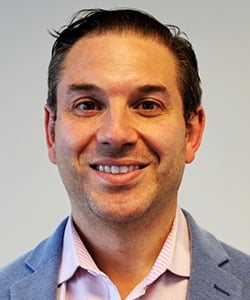
Gary Schwartz, MD, is the director of acute pain management at Maimonides Medical Center in Brooklyn, NY. He is board certified in both pain management and anesthesiology. Dr. Schwartz completed an interventional pain fellowship at Mount Sinai School of Medicine, after finishing his anesthesia residency at St. Vincent's Hospital and Maimonides Medical Center. He received his Doctor of Medicine from SUNY Upstate College of Medicine and graduated Magna Cum Laude from Union College in Schenectady, NY. Dr. Schwartz focuses on back pain, neck pain, spinal cord stimulation, nerve pain, joint pain, and failed back surgery syndrome. At Maimonides Medical Center, Dr. Schwartz focuses on assisting hospitalized patients with postoperative pain and also educates anesthesia residents and medical school students. Dr. Schwartz also serves as a committee member for ASRA and the ASA. [Top]

Eric Schwenk, MD, completed his fellowship in regional anesthesia and acute pain in 2013 at Thomas Jefferson University, where he then joined the faculty. Dr. Schwenk enjoys teaching residents and fellows and is actively involved in research on subanesthetic ketamine for migraine and other conditions. Other research focuses include outcomes after total joint arthroplasty and social media in medicine. He has been social media vice chair for ASRA and is currently a member of the research committee and guidelines/regulatory advocacy committee. Dr. Schwenk is a Christian and married with an 8-year-old son. He loves the UNC Tar Heels and Philly sports! [Top]

Shalini Shah, MD, serves as associate professor and vice-chair (Pain Medicine) for the department of anesthesiology & perioperative care and enterprise director of pain services for University of California Irvine Health. Dr. Shah completed her residency in anesthesiology from NY Presbyterian-Cornell University and a combined fellowship in adult and pediatric chronic pain at Brigham and Women's Hospital, Beth Israel Deaconess and Children's Hospital of Boston, Harvard Medical School. She is the founder of the pediatric pain program at University of California, Irvine, and has previously served as associate program director for the pain medicine fellowship. Dr. Shah is the recipient of the ASRA Chronic Pain Medicine Grant Award in 2017 for her work in onabotulinumtoxinA (BOTOX®) use in pediatric migraine pain. She currently leads several industry and peer-reviewed funded clinical trials in pediatric and adult pain medicine and is energized by collaborating with other eager physician scientists. Dr. Shah currently serves as the founding chair, Committee of Pain Medicine at the California Society of Anesthesiologists (CSA) and is strongly committed to pain advocacy and regulatory reform both in the state of California and nationally. [Top]
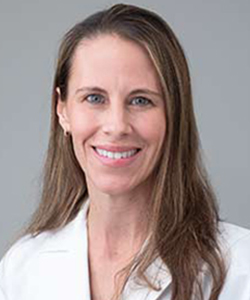
Ashley Shilling, MD, is an associate professor at the University of Virginia (UVA) Medical Center. She attended both medical school and residency at the University of Virginia. Her passions include regional anesthesia and acute pain medicine, ambulatory anesthesia, orthopedic anesthesia, and medical education. Her roles include medical director of UVA’s ambulatory surgical center, director of regional anesthesia and acute pain medicine division, and program director for UVA’s regional anesthesia and acute pain medicine fellowship. [Top]
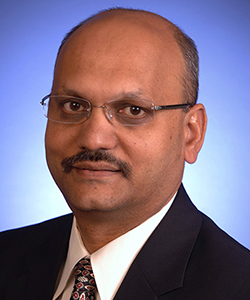
Sanjay Sinha, MBBS, is the director of regional anesthesia and the program director of regional anesthesia and acute pain fellowship at St. Francis Hospital and Medical Center, Hartford, CT. He has developed a robust regional anesthesia service in a private practice setting. Dr. Sinha is involved in teaching the anesthesia residents from University of Connecticut School of Medicine and has received Teacher of the Year Award. His current interests are developing innovative ultrasound-guided regional anesthesia techniques for arthroplasty patients and ambulatory surgical patients. [Top]
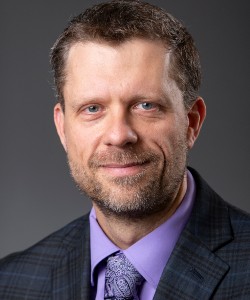
Brian Sites, MD, MS, is professor of anesthesiology and orthopedic surgery at the Geisel School of Medicine at Dartmouth and Dartmouth-Hitchcock Medical Center. He is the medical director of the Acute Pain Medicine Service. Dr. Sites’ clinical passion and research centers around the role of image guidance for regional anesthesiology. His public health research centers around the prescription opioid drug crisis as well as value-based care. He is actively involved with best practices for education and training of medical students, residents, and staff. Dr. Sites has authored more than 70 publications on regional anesthesia and sonopathology and developed numerous educational videos. He is the editor-in-chief of Regional Anesthesia & Pain Medicine. He has spoken nationally and internationally more than 100 times and is considered an international authority on ultrasound-guided regional anesthesia. [Top]
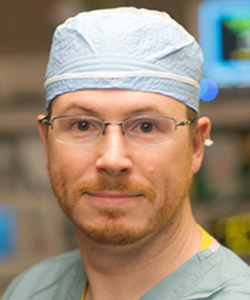
Cameron Smith, MD, PhD, is a native of Ottawa, Ontario, Canada. He joined the faculty at the University of Florida after completing his fellowship in Acute and Perioperative Pain Medicine at the University of Florida. Prior to this, he did his anesthesiology residency training and a research fellowship at the University of Florida as the Gravenstein Scholar in Clinical and Translational Science. Dr. Smith attended medical school at Virginia Commonwealth University in Richmond, where he also earned his PhD in physiology and biophysics. [Top]

Santhanam Suresh, MD, is the Arthur C. King Professor and chair of the department of pediatric anesthesiology at the Ann and Robert H. Lurie Children’s Hospital of Chicago, IL. He is a director of the American Board of Anesthesiology. He also serves as co-chair of the SmartTots Steering Committee, chair of the Educational Track Subcommittee on Pediatric Anesthesia for the American Society of Anesthesiologists, and member of the Board of Trustees for the International Anesthesia Research Society. [Top]

Patrick Tighe, MD, is an associate professor in the departments of Anesthesiology and Orthopaedic Surgery at the University of Florida and is an affiliate associate professor of Information Systems and Operations Management at the Warrington College of Business. His National Institutes of Health-supported research uses deep learning techniques to examine the temporal dynamics of acute postoperative pain (PI, R01GM114290), as well as the impact of acute pain and anesthetic techniques on postoperative cognition in older adults (Co-PI, R01AG121647). [Top]
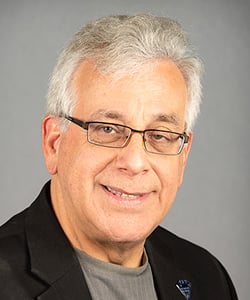
Eugene Viscusi, MD, is professor of anesthesiology, chief of pain medicine, and director of acute pain management, at Thomas Jefferson University in Philadelphia. His studied include pain management techniques, outcome studies, and novel agents and delivery systems. He has been a primary investigator for most emerging pain technologies in the last 25 years. Dr. Viscusi has lectured extensively and authored over 100 book chapters and abstracts, and contributed more than 75 peer-reviewed articles JAMA, Anesthesiology, Anesthesia & Analgesia, and Regional Anesthesia and Pain Medicine. His research has been covered by Newsweek, The Wall Street Journal, and USA Today as well as nationally televised interviews. Dr. Viscusi became president of ASRA in 2019. [Top]

Thomas Volk, MD, attended the University of Essen, Germany and completed his residency at Charite University Medicine, Berlin, Germany. He is a full professor of anesthesiology at the University of Saarland and head of the department of Anesthesiology, Intensive Care and Pain Medicine in Homburg, Germany. He is member of several medical societies and the outcomes research consortium. He has published more than 230 research papers and his main interests are related to breath analysis and regional anesthesia. Thomas Volk currently is president of the European Society of Regional Anesthesia and Pain Therapy. [Top]
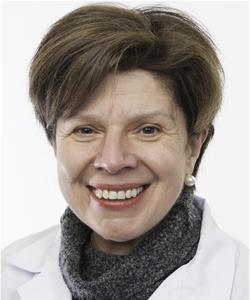
Effronssyni (Gina) Votta-Velis, MD, PhD, is a professor of anesthesiology and surgery at the University of Illinois at Chicago and the director of the Pain Medicine Fellowship. She is a member of the ASRA Board of Directors and the vice chair of the ASRA Research Committee. She is an examiner for the European Diploma in Pain Medicine. She received the Carl Koller Research Grant in 2018 and the ASRA Trailblazer Award for her contributions to the field of pain medicine in 2020. [Top]
Morn Wolmarans, MBChB, FFRCA, EDRA, has been a consultant anesthesiologist at the Norfolk and Norwich University Hospital in the United Kingdom for 17 years. Starting medical practice in Cape Town, South Africa, he then moved to London and finished specializing in anesthesia and intensive care medicine in Cambridge. Dr. Wolmarans developed a special interest in ultrasound regional anesthesia (RA) in 2000. He regularly lectures at international conferences, organizes workshops, and has established ultrasound courses nationally and internationally. Dr. Wolmarans has been actively involved with the RA-UK board for the last 10 years. He is the immediate past-president for Regional Anaesthesia United Kingdom (RA-UK), an ESRA Board member, vice chairman of the EDRA Board, an examiner for the EDRA diploma, and external examiner for the University of East Anglia Masters Programme in Regional Anaesthesia. His special interests are education in ultrasound RA, RA non-technical skills (RANTS), vascular anesthesia, golf, and fine wine. [Top]

Yury Zasimovich, MD, is an assistant professor of anesthesiology at the University of Florida College of Medicine in Gainesville. Dr. Zasimovich completed his anesthesiology residency at the University of Florida and was named chief resident in 2013. He then followed with a fellowship in the Acute Pain and Perioperative Pain Medicine Division. Some of his current research interests include “Transferrable training in thoracic epidural and paravertebral blocks using an advanced mixed-reality simulator” and “The diagnostic validity of laser-Doppler flowmetry, transmittance tissue oximetry, and invasive pressure monitoring in chronic exertional compartment syndrome – which one wins the gold?” He is a reviewer for the Journal of Pain Medicine, has many publications, and is an active member in several professional societies. [Top]